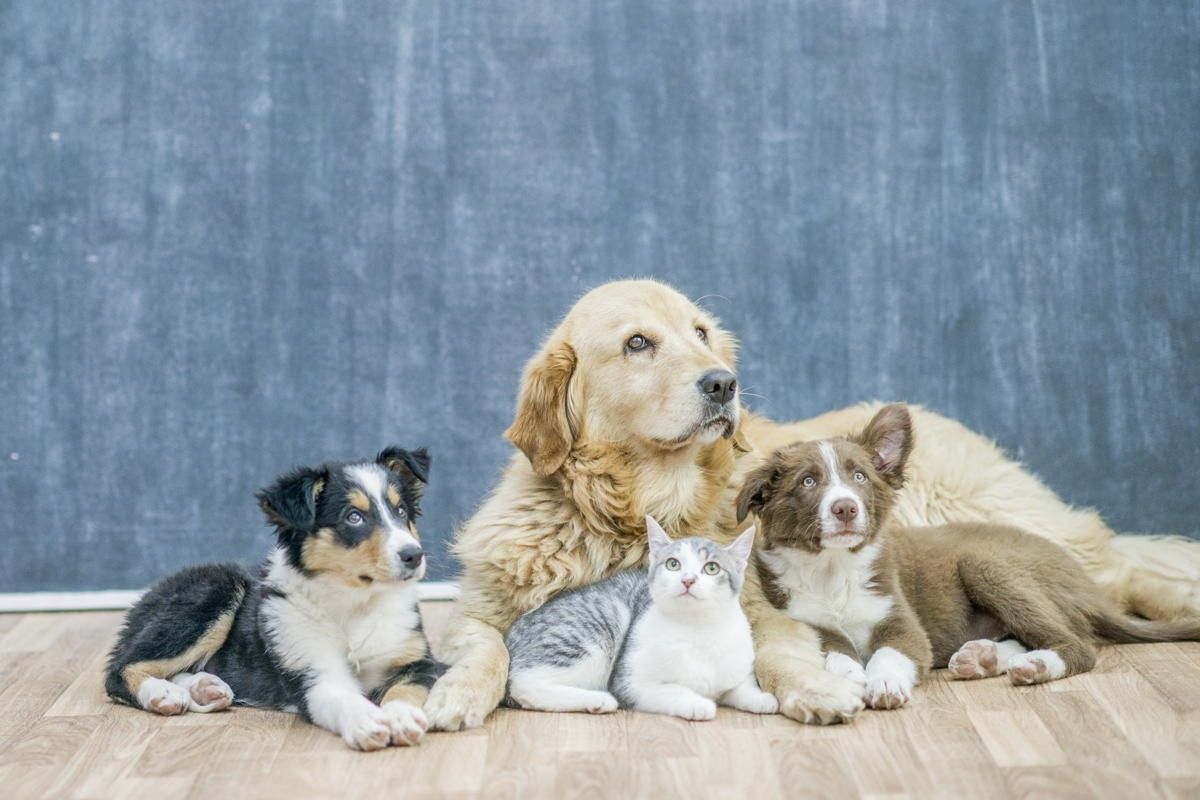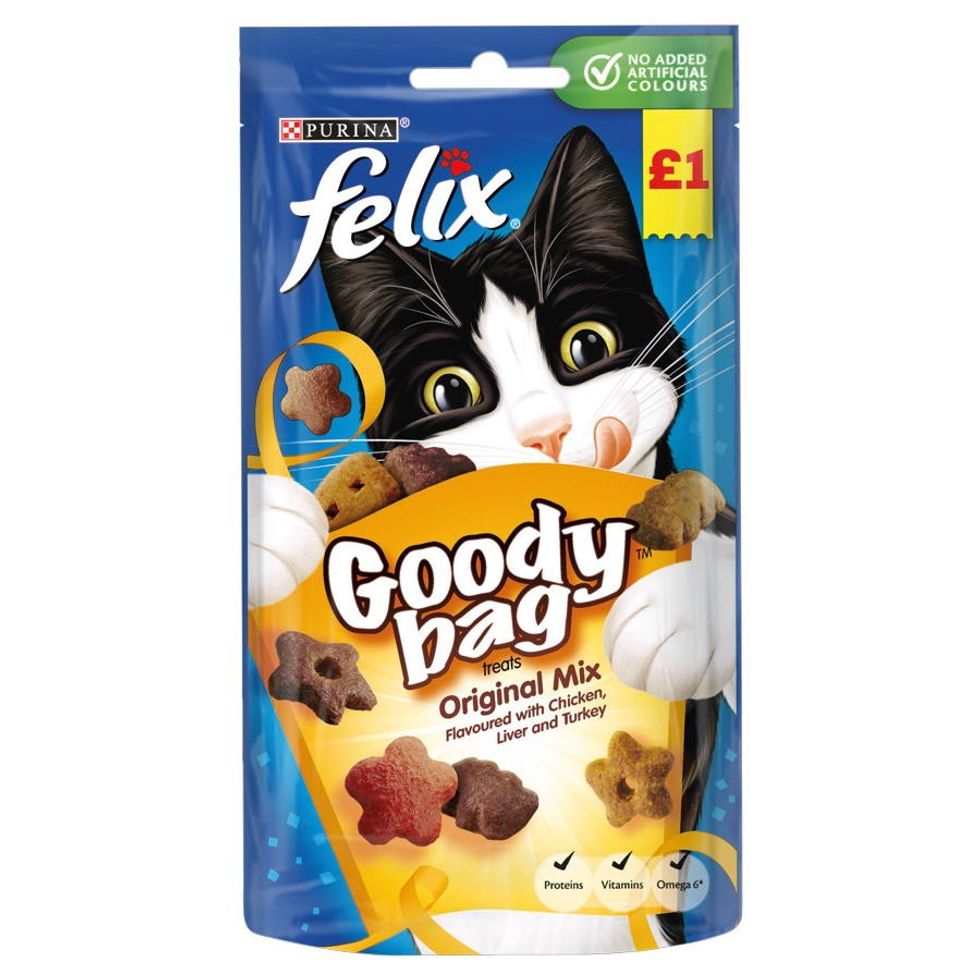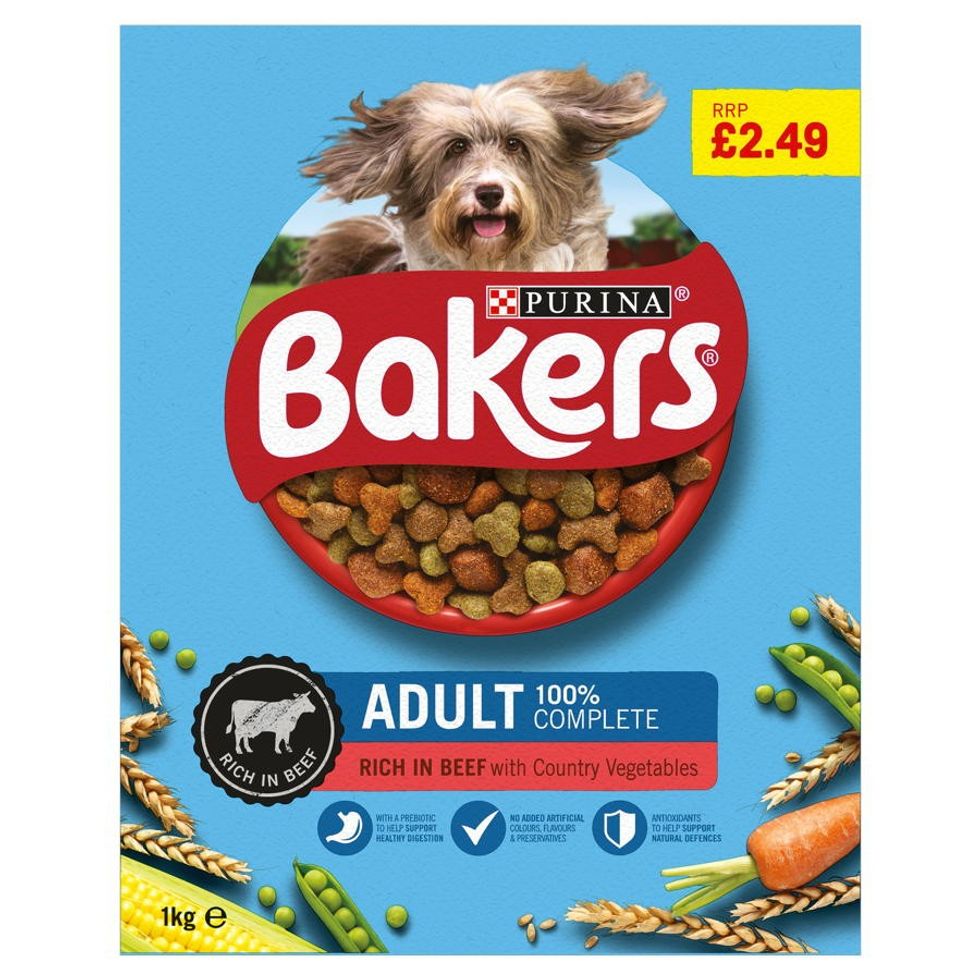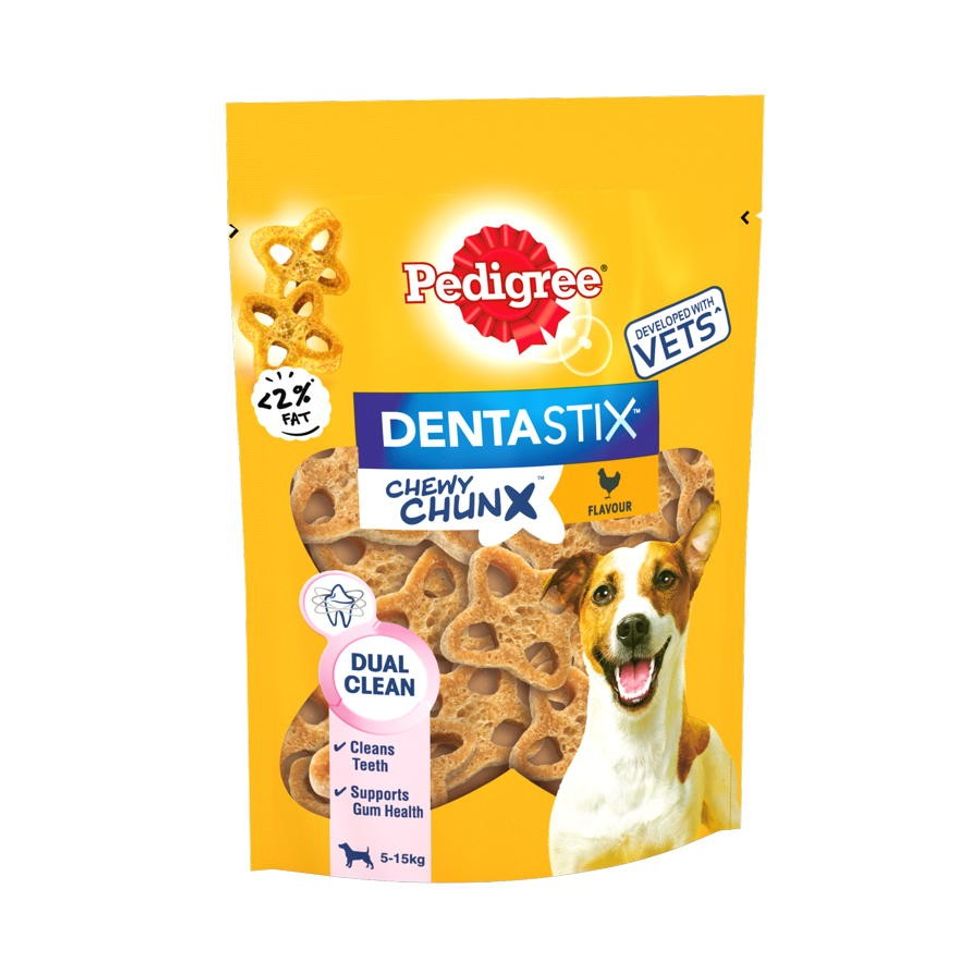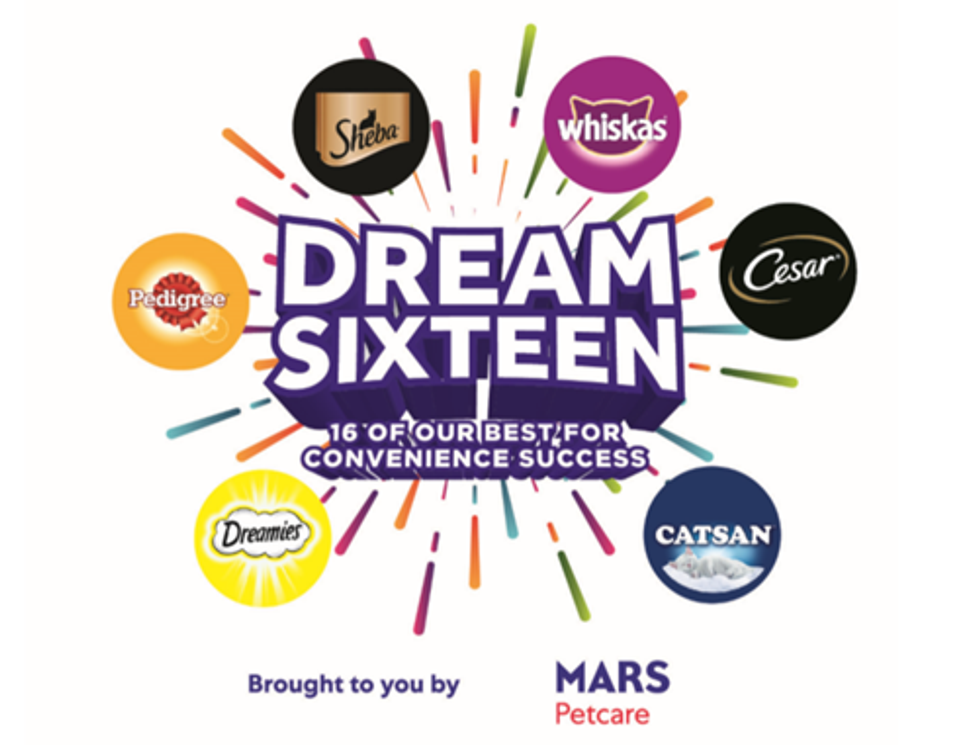Back in 2019 we reported that the UK pet food market was predicted to grow at an annual rate of 2.5 per cent until 2021. Euromonitor understood that growth in the petcare sector was driven primarily through price premiumisation, because of the declining numbers of units and volume being sold: people were buying smaller dogs that didn’t eat such big meals, but their pets were being treated more often and expensively.
Fast forward to now and we discover that, thanks to the pandemic, growth has gone crazy and instead of 2.5 per cent, 2020 delivered over four times that, at +11 per cent growth for the year. The pet food category is now worth over £3 billion and in grocery it is the seventh largest category, over four times the size of household cleaning and tea, according to Kantar’s 2020 data.
Last year the Pet Food Manufacturers' Association (PFMA) discovered that in the UK there are now around 7.5 million cats and nine million dogs as pets, and that even – in fact, especially – in pandemics, pet ownership remains a staple of UK life.
What is now clear is that there are good possibilities for increased sales of pet care products within convenience, and a chance to make them a significant slice of store revenue. If you don’t stock many yet, now is the time to expand, and the suppliers are keen to help.
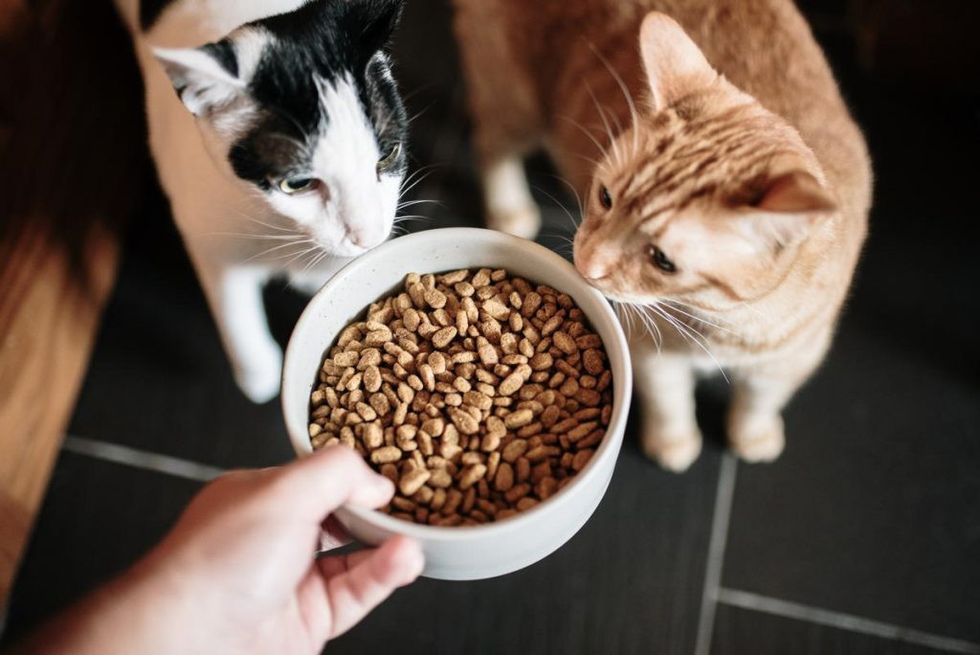
As Alex Smith, Channel Manager, Convenience at Mars Petcare UK, says, “Britain’s cats and dogs have emerged from 2020 licking their lips.Throughout the year, petcare enjoyed robust sales as the nation turned to their furry companions for comfort. Nowhere has growth been more obvious than in convenience which, despite traditionally playing a small but important role in the category, has emerged as a driving force.”
There are two prominent and encouraging changes here that store owners should be quick to act on. The first is the behavioural shift to local shopping due to the lockdowns and government advice to not venture very far from home. That meant more shopping for pet food and treats came convenience’s way.
Also, psychologically, pets proved incremental, as lonely, cooped-up people acquired all sorts of mammals (and presumably reptiles as well) – but mainly dogs and cats – for companionship under pandemic conditions. “When Covid-19 turned the world upside down in the in the first few months of 2020, breeders and rescue centres reported a boom in enquiries from people looking for new pets,” reported Mars Petcare last autumn. “In the week before Britain went into lockdown, Battersea Dogs and Cats Home rehomed more than double the number of pets it did in the same week in 2019. Pets charity Dogs Trust said … that demand for puppies was outstripping supply."
Incremental sales
The pet care category may already be worth £3 billion, but the current rate of growth will undoubtedly push that number upwards.
“There has been a notable shift in the total market, with petcare value moving away from grocery throughout the pandemic,” says Smith, who explains that it mirrors the switch to local providers, with the convenience channel’s share of petcare sales up by +0.2 per cent to +5.4 per cent [Nielsen CPS MAT Sept 2020].
As 2020 progressed, this trend only continued, with 69 per cent of UK consumers deeming convenience to be an important factor in finding places to shop. “Whilst the short-term impact has been significant, there are signs that these habits are here to stay,” believes Smith. “A third of pet owners bought food online for first time during lockdown, and 55 per cent of these intend to continue shopping this way during 2021. We expect to see similar developments within convenience, with the channel forming a significant segment of our projected 2.4 per cent compound annual growth over the next five years.”
So much for the behavioural, with many experts agreeing that habit changes are here to stay: more online and local shopping even after lockdown ends.
Psychologically, what seems to be happening is that locked-down people are showing gratitude and affection for pets in return for the comfort provided by them, and have decided to treat their animals as they would like to be treated themselves – tenderly and indulgently. Put that together with what Smith calls “the lipstick effect” of spending on small luxuries when times are hard, and pet care sales benefit disproportionately from the lack of flights to Ibiza. And from these smaller, often impulse purchases, convenience stores also benefit.
And as well as the significant boom in pet treat sales, premium main meals have enjoyed a boost as a result, with 78 per cent of pet owners reporting that the quality of the food they give their animals is as important as what they eat themselves. “The emotional benefits of treating our pets to their favourite foods has ensured this popularity has endured, and there’s historical evidence to support the argument that premium petcare will continue to be a feature in convenience stores for the foreseeable,” argues Smith, reminding us that after the financial crash of 2008, for example, sales of many other categories previously experienced the same lipstick effect.
Premiumisation and trends
“Pet food will continue to premiumise through better quality products and convenience formats, and shoppers will look out for the well-known brands they buy in the major multiples,” reported a Nestlé Purina spokesperson.
One sign of premiumisation is the ongoing switch from wet food in cans as shoppers trade up to pouches with luxury recipes, such as Felix. The single sale of pouches is typical of convenience shopper patterns and luxury pet foods can be used to drive margin.
“There is still headroom for growth and these areas offer key opportunities within convenience. The dog portfolio is similar to that of cat, with pouches and treats also driving growth, a trend which also looks set to continue. This is encouraging news for the convenience sector as there is still plenty of room to grow in these categories, particularly dog pouches,” Nestlé Purina explains. “We understand what convenience retailers need to win in the market and we use our expertise and insight to help drive the right range, merchandising and promotional plan.”
Advanced nutrition, treats and convenience – meaning not only pouches but also dry food – are increasingly important in shopper decisions as well.
Pet owners are premium shoppers, says Richard Roe, Key Account Business Development Manager for Vital Pet Group. “Pet food shoppers are more likely to spend more, with an average basket of £11.19 compared with £6.28 and nearly twice as many items per shop than the standard convenience store shopper. With that in mind, they are really worthy of the focused attention of savvy retailers.”
Roe adds that HIM research found, looking at basket composition, that pet food shoppers are most likely to buy milk, newspapers and lager, so placing the pet care fixture near those areas will help to increase sales.
“Premiumisation has long been a key driver of petcare sales, but the last 12 months has seen the trend grow its popularity even further,” says Smith.“More of us than ever before are seeing our pets as members of the family, with 72 per cent of shoppers stating that they would be unwilling to compromise on the quality of products being bought for their pet. That’s only four percent more than would compromise on products for their human children.”
He says that with such strong sentiment, it’s no wonder that premium offerings are continuing to drive petcare sales. This is particularly true of convenience, where premium cat meals added +14 per cent year on year growth in 2020”
“The continued growth of premium products not only shows the enduring popularity of luxury options and the growing importance of our pets as members of the family, but that it is more relevant than ever for convenience retailers to cater to this demand.”
Organic or natural is big in pet care as well, as pet trends follow human ones. A growing market even prior to the pandemic, natural claims have become the number one motivator for human food choices, growing six per cent in recent years. “Anything artificial is eyed with suspicion, and when it comes to ingredients, less is more; fifty-two per cent of consumers agree that a product is healthier if it contains fewer of them,” says Smith. This trend is having a huge influence on pet nutrition, and pet food products carrying claims relating to nature-inspired diets currently account for 12 per cent of the market, having achieved +14.8 per cent growth in the latest 12 months .
Both natural and health appeal cuts across categories, with healthy treat options proving just as enticing to consumers. This presents a real opportunity for convenience retailers, with both food and treating options easily slotting into existing petcare ranges. Indeed, natural treats and dry dog foods from brands such as Pedigree have contributed to a four per cent uplift in sales over the last 12 months. “We also forecast compound annual growth of eight per cent between now and 2024 for natural products, delivering £166m in incremental sales and a 16 per cent slice of the category,” adds Smith.
With so many cross-selling opportunities in the category, and with trusted and proven brands to stock, adding products that cater to the shopper alert to organic or natural labels, is a great opportunity for future growth.
And pet treatments can also be a good seller: “Spring sees interest in flea and tick products start to increase and the higher value health and hygiene sector is currently in growth,” says Roe. “Our experts at Vital Pet Group have some ideas about how to merchandise these higher value products to avoid theft, while still encouraging high margin sales.”
Merchandising to pet “parents”
Mintel research discovered the extent to which the “humanization” trend was continuing to influence the pet industry.There has been an increase in the millennial generation owning pets almost as a precursor to having children, while pets also play a key part in the lives of empty-nesters, and even full-time workers, who are actually the most likely to own a pet. Added to that is now the lockdown pet, but what all have in common is the societal change of bringing in the dog from the kennel to the couch, so to speak.
“Humanisation of pets is the big news here – driving premiumisation, with strong trends in natural, meat-free and treating/gifting. Pets have really cemented their position as members of the family,” says Roe.
“Today, few people who keep animals see themselves merely as pet owners,” adds Smith.“Seventy-two per cent of UK shoppers refer to themselves as their pets’ ‘mummy’ or ‘daddy’, affecting not only what they spend their money on in-store, but how they spend it.”
Again, pet owners are often the best customers:on average, reveals Smith, households that have pets spend 26 per cent more on groceries!“ Even if you take pet food and litter out of the equation, average spend is still 15 per cent higher,” he says, and retailers should be aware that there are higher levels of affluence among pet owners. Shops that can attract pet parents through their doors can expect larger basket spend:“This presents another clear sales opportunity for retailers who can offer broader petcare offerings in-store.”
Mars Petcare’s advice is to maximise the benefit of “humanization” by allotting more shelf space for a greater breadth of range. Over half of UK shoppers now say they would sooner reduce the amount of money they spend on themselves than on their pets, so a variety of premium and healthy meals (and fun treats) encourages shoppers to trade up and extend their spend.
“Working with a pet specialist partner such as Vital Pet Group on supply means that independents can access expert help with their listings based on the specific needs of their outlet,” says Vital’s Roe.
“Seasonality is a key driver and with pets increasingly being viewed as a member of the family, pet owners often want to treat and involve their pet around the big holidays such as Easter, Halloween and Christmas. Innovation and exclusive products will help your store to become the local destination for pet owners – who account for around 40 per cent of households and rising.”
Back to behaviour-driven shopping patterns, Mars Petcare’s Alex Smith notes that with increasing numbers of consumers ditching the “little and often” pattern of shopping, thinking about the shopper’s journey through the store can be very beneficial. “Everyday brands such as Pedigree and Whiskas should be sited at the end of that journey, whereas premium offerings should be up front and signposted,” he advises: POS and clear brand blocking are great ways of doing this, enticing owners to treat their pets to something special.
“This is particularly effective when appealing to health-conscious pet owners who are likely to have planned their purchase. The number of products available for specific dietary and nutritional needs can easily lead to confusion in-store so it is important to use well-known, trusted brands to signpost, helping these valuable shoppers navigate the fixture and reassure them that the store has everything their pet might need.”
The same familiar principles of good, better, best can be applied to pet food brands across dog and cat, wet and dry and can encourage pet owners to trade up, says Richard Roe. “Picking up seasonality with clear signage is also important. We recommend a skinny FSDU with a seasonal focus as a must-have feature in store.”
Mars Petcare’s own research showed that up to 55 per cent of pet owners had failed to purchase in the convenience channel due to lack of choice, so making space for familiar brands will help retailers of all store sizes offer affordable choice amongst shoppers. Vital’s Roe says it’s vital to get the right mix of everyday staples, such as pet food, cat litter, poo bags and bedding for small pets, alongside more impulse-driven purchases that increase the size of the basket.
Addressing this head on, Mars Petcare has developed the “Dream Sixteen” core range to support retailers of all store sizes address choice for shoppers and capitalise on the opportunity of increased sales by attracting lucrative pet-owning consumers to their stores.
“After a challenging year for many, coupled with a marked increase in pet ownership as a result of more time being spent at home, we recognise that shopper habits and priorities have changed,” says Smith.“Our new ‘Dream Sixteen’ core range is a selection of must-stock products from our well-loved brands – Whiskas, Pedigree, Sheba, Cesar, Dreamies and Catsan – which we have specifically selected to drive sales success for our convenience customers. We are set to inspire retailers with ‘Dream Sixteen’ and show them the opportunity the petcare category represents – we have big plans for the year ahead and look forward to supporting the channel.”
And although the pandemic has encouraged sales of premium products, at the same time it has also forced many to budget carefully as financial uncertainty looms. Against this backdrop, and in addition to its “Dream Sixteen” core range, Mars Petcare is launching three price-marked packs (PMPs), available now and supported with “Dream Sixteen” merchandising advice and planograms from Mars Petcare:
Pedigree Pouches is growing at an impressive +33 per cent, and a 12-pack will carry a £3.75 RRP price-mark. For those shoppers looking to trade up for their dogs or cats, Cesar Trays 8-pack and Sheba Pouches 12-pack will both carry a £4.75 RRP price-mark. Cesar Trays are growing at +8 per cent, while Sheba Pouches are seeing growth of +14 per cent, says Smith: “As premium options they are ideal at encouraging shoppers to spend a little more to treat their beloved pets. Having these available in a PMP helps them feel as though they are getting great value from their local convenience store.”
Treats are another item that retailers should not overlook. Roe sayspets are seen to be deserving of snacks and small luxuries just like their owners, so innovative pet treats can be profitable listings. “From new brands like the Denzels eco range, to functional brands like Greenies and Pedigree’s Dentastix and experience driven brands like Elkwoods’ Rattlesnaps Dental Chews which make a noise when shaken, there’s plenty to tempt shoppers. Toys, both to keep pets occupied indoors and to take along on walks, should also be included in the mix.”
And don’t neglect the wildlife, especially now when there is a lot of lockdown window-gazing going on. “Wild bird is another great one to consider,” says Roe.“At Vital we often find sales peak not just in the winter months but when people spend more time at home over summer, so that’s definitely worth catering for right now.
Vital Pet Group stock thousands of pet products, many of which qualify for free next day delivery on orders as small as £60, Roe advises.
“The Elkwood treat range is a great one to look at and includes seaweed-based Vegetable Sea Creatures treats which are gluten-free, with further innovation to come. There is also a lot of innovation in eco and grooming ranges right now.”

